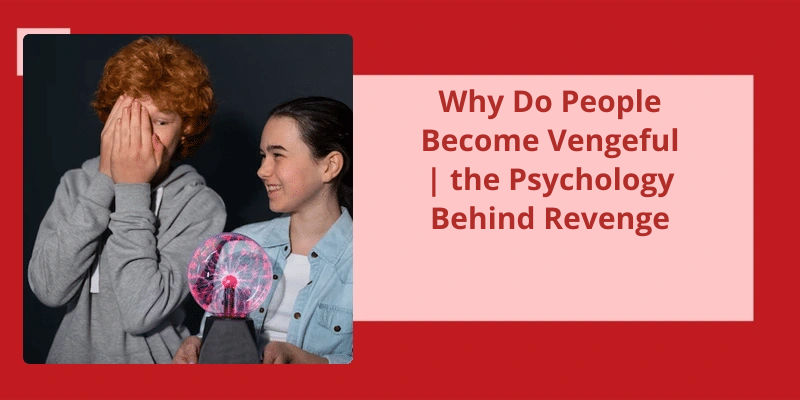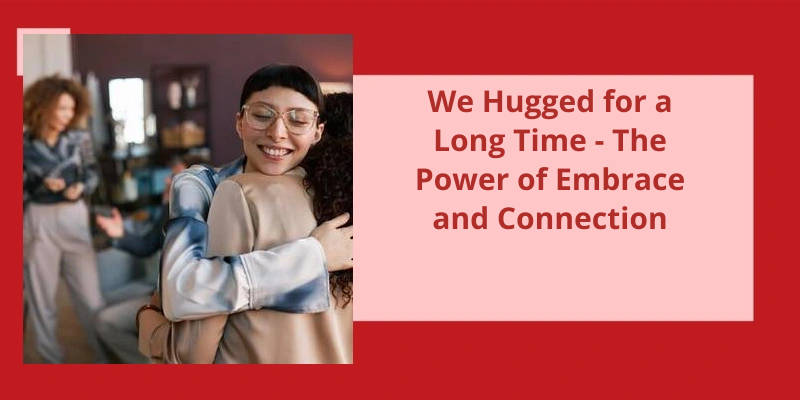However, revenge isn’t always a rational or effective solution to addressing perceived wrongs. In fact, seeking vengeful actions can often lead to a cycle of retaliation, escalating conflict and continued harm. Researchers have explored various factors that contribute to vengeful behavior, such as emotional regulation, social norms and culture. By gaining a better understanding of why people become vengeful, we can potentially find more constructive ways to address conflicts and promote healing in individuals and communities.
What Is the Character Trait for Vengeful?
Simply put, to be vengeful is to harbor a deep-seated desire for revenge against anyone who may have wronged us in any way, shape or form. Vengeance takes on many forms, from subtle manipulations to overt acts of aggression. The desire for revenge can be motivated by a range of emotions, including anger, hurt, betrayal or just a sense of injustice.
One of the most striking character traits of a truly vengeful person is their inability to forgive. The act of forgiveness requires one to relinquish hatred, bitterness and the desire for revenge. A vengeful person, on the other hand, clings to these emotions with a tenacity that’s unyielding. Even in the face of apologies or attempts at reconciliation, a vengeful individual will hold on to their anger and hurt.
Another hallmark of a vengeful nature is a lack of empathy. The ability to empathize with others allows us to see their perspective and understand their motivations. A vengeful person, however, is so consumed with their own feelings of anger and bitterness, they’re unable to see beyond their own perceptions. They see the world through a lens of victimhood, making them quick to perceive anything as a personal attack.
A vengeful individual is also prone to rumination. Instead of letting go of a perceived wrong, they’ll replay the event over and over in their mind, building up the offense with each passing moment. This constant rumination keeps the anger and hurt alive, feeding the desire for revenge and preventing any chance of forgiveness or reconciliation.
Finally, vengeful people tend to be very vindictive. They’re quick to lash out at friends, family members or even innocent bystanders if they believe it will serve their ultimate goal of revenge.
Strategies for Overcoming Vengeful Tendencies and Cultivating Forgiveness
- Practice empathy and try to understand the other person’s point of view
- Focus on the present moment and let go of past grudges
- Consider the benefits of forgiveness for your own well-being
- Talk to a trusted friend or therapist for support and guidance
- Try to find common ground and compromise
- Communicate openly and honestly with the other person
- Practice self-compassion and forgive yourself for any mistakes
- Let go of the need for revenge and focus on moving forward
- Practice gratitude and focus on the positive aspects of life
- Remember that forgiveness is a process and it may take time
Understanding the root cause of vengeful behavior is key to finding ways to address and prevent it. While jealousy, insecurities, and negative thoughts are common characteristics of vindictive people, they’re often driven by deeper psychological issues that need to be explored in order to promote healthy behavior. In the following sections, we will delve deeper into the causes and effects of vengeful behavior and discuss strategies for dealing with it constructively.
What Causes a Vengeful Person?
The root cause of a vengeful persons behavior is often found in their past experiences and personal beliefs. Many times, they may have experienced rejection or disappointment in their lives, leading them to develop a sense of being wronged by others. This can also translate into feelings of jealousy and envy towards those who succeed or have what they perceive to be more than they do.
Additionally, many vengeful people may have a history of being mistreated themselves in the past. This could be in the form of physical, emotional or psychological abuse, leading them to develop a desire for retribution towards those who’ve hurt them.
Moreover, vengeful individuals may also have a personality disorder such as borderline personality disorder, narcissistic personality disorder or antisocial personality disorder. These disorders can contribute to feelings of entitlement, a lack of empathy towards others, and an inability to regulate emotions effectively, all of which can lead to vengeful behavior.
Overall, it’s essential to understand that vengeful behavior isn’t just a simple reaction to a specific event. It often stems from a complex interplay of past experiences, beliefs, and personality traits. Helping vengeful individuals to understand the root cause of their behavior and learning more adaptive ways to cope with their emotions can be a crucial step in breaking the cycle of revenge and improving their overall well-being and relationships with others.
Understanding the psychology behind wanting revenge is crucial for developing healthier ways to cope with the pain and trauma caused by the actions of others. While the initial urge to seek revenge may feel satisfying, research suggests that the long-term effects of revenge can be detrimental and lead to further negative outcomes. Rather than offering closure, revenge can prolong distress and perpetuate a harmful cycle of retaliation.
What Is the Psychology Behind Wanting Revenge?
The psychological explanation behind wanting revenge is complex and multifaceted. At it’s core, it stems from a deep-seated need for justice and retribution, which is rooted in our evolutionary history as a primal survival instinct. When we feel wronged or mistreated, our brains go into overdrive, triggering a cascade of emotions including anger, frustration, and resentment. These feelings can be overwhelming, and many people feel that the only way to alleviate them is through vengeance.
However, the long-term effects of revenge can be profound. Research has shown that when we seek revenge, we’re essentially keeping the wounds of the original offense open, prolonging our suffering and preventing true healing from taking place. In many cases, revenge only serves to escalate the situation, turning a minor dispute into a full-blown feud. It can also lead to feelings of guilt, shame, and regret, as well as damage to important personal relationships.
To truly move past an offense, it’s often necessary to forgive the person who wronged us. This doesn’t mean that we condone their behavior or pretend that it never happened. Rather, it involves acknowledging the harm that was done, expressing our feelings in a constructive way, and finding a way to move forward in a productive and positive manner.
By understanding the psychology behind it and the long-term effects that it can have, we can begin to develop more effective and compassionate methods of resolving interpersonal disputes and promoting peace and healing in our communities.
Source: The Psychology of Revenge: Why It’s Secretly Rewarding
Conclusion
In our highly interconnected and social world, human beings will inevitably face situations that involve receiving personal injury or offense from others. While some people are able to brush off or forgive such situations, others may become vengeful. The reasons for this behavior can include feelings of hurt, injustice, or rejection. Grudges and negative emotions can fester and prolong the pain of the original offense. Understanding the psychological and emotional drivers of vengeful behavior can help individuals recognize when they may be at risk of falling into that trap, and find more constructive ways of dealing with interpersonal conflicts. Ultimately, learning to let go of anger and resentment can be a powerful step towards healing and forgiveness.






